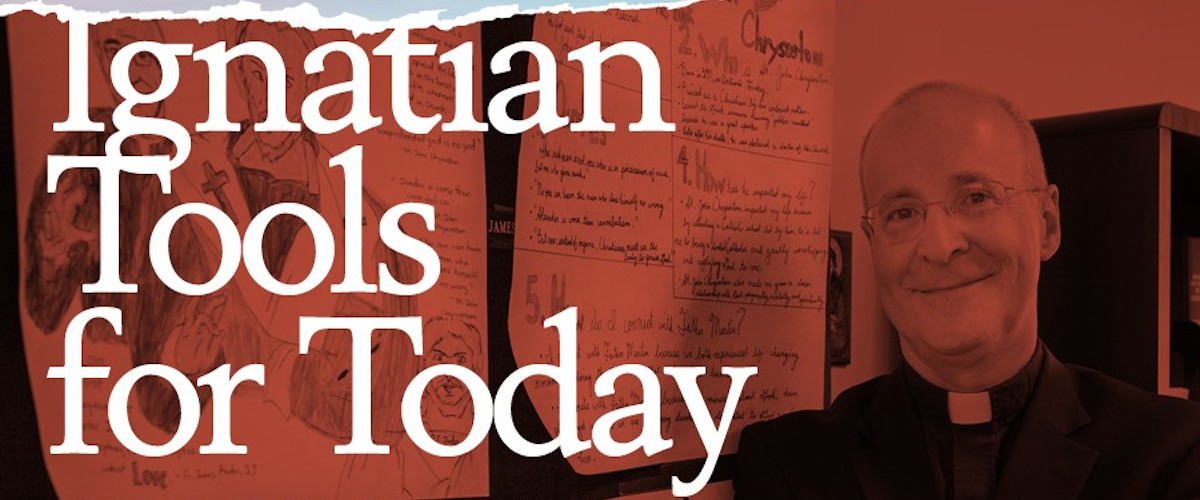
The Philippine audience was excited for the talk, with nearly 700 people on Zoom to hear Fr Martin. Fr Jett Villarin SJ, outgoing President of the Ateneo de Manila University, welcomed Fr Martin on behalf of the Ateneo community. Both Jesuits bantered about the long-standing ties between (what was then) the New York Province and the Philippine Province, as many New York Jesuits were sent to the Philippines, and over the years became some of the most well remembered professors at the university.
Fr Martin began his talk by contextualising Ignatian Spirituality in light of the pandemic, which “both separates and unites us”. We are all “alone together”. Many negative emotions run wild these days, including fear, confusion, anger, loneliness, and sadness. How can Ignatian Spirituality help? Fr Martin pointed out three classic Ignatian tools that can ease the burden: Discernment, the Examen, and Contemplation.
For clarity, he started with the life of St Ignatius of Loyola, who was born in Spain’s Basque country, became soldier and knight, was wounded in battle, and during his recovery had a conversion that set him down a spiritual path. It was during the recovery period that Ignatius started reading about the life of Christ, and the lives of saints. This is when his discernment of the spirits began: the good spirit bringing hope, and the evil spirit bringing despair. “The voice of God in this pandemic is the voice of calm, of reason, of hope,” said Fr Martin. This is the chance to tune in to God, because “the more you pay attention to God in your life, the more you will understand…listening and paying attention will bring recognition”.
Then he discussed the Examen, essentially an examination of conscience, or in very accessible terms, “a review of your day… that helps [you] see the whole picture”. For those who are not used to the Examen, it can sound confusing or even intimidating, but in 10 to 15 minutes and in five steps, Fr Martin delineates the Examen. Step 1: Put yourself in the presence of God. “Be with me now,” is the phrase Fr Martin likes to use. He also recommends looking at the place where you are going to pray, which makes it easier to slide into the mind-set of prayer. Step 2: Ground yourself in gratitude. Remember all of the things you are grateful for, big and small, and savour them. Thank God for these things. Step 3: Review the day, and try to see where God was and is. Step 4: Express your sorrow for your sins. Step 5: Ask for Grace. If you struggle, Fr Martin recommends spending time on gratitude, by thinking of something that will remind you of God’s presence in your life. Most of all, Fr Martin reminds us: “Are you being honest in your prayer?”
The third tool, Ignatian Contemplation–imaginative prayer–asks you to imagine yourself in a scripture scene. “Compose the scene… give yourself time, close your eyes, and envision.” Using your senses and feelings, let it play out and notice what comes up within you–insights, memories, feelings. “Can you be honest with Jesus?” asked Fr Martin. “Speak bluntly. Listen to his response,” he said. “God wants our honesty,” is how Fr Martin succinctly put it.
And even during a painful period of loss, Ignatian Spirituality can help. “Suffering is never the last word,” shared Fr Martin. “We are people of Hope,” he said, “not just the Cross, but the Resurrection, too.” He said: “The Spirit is not rationed”, true words of consolation–in the Ignatian sense–ever more resonant in this most difficult time.






